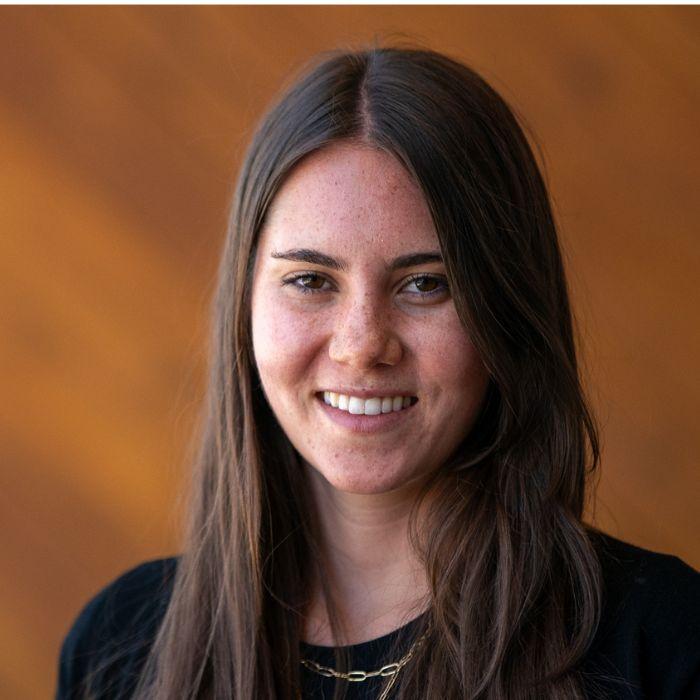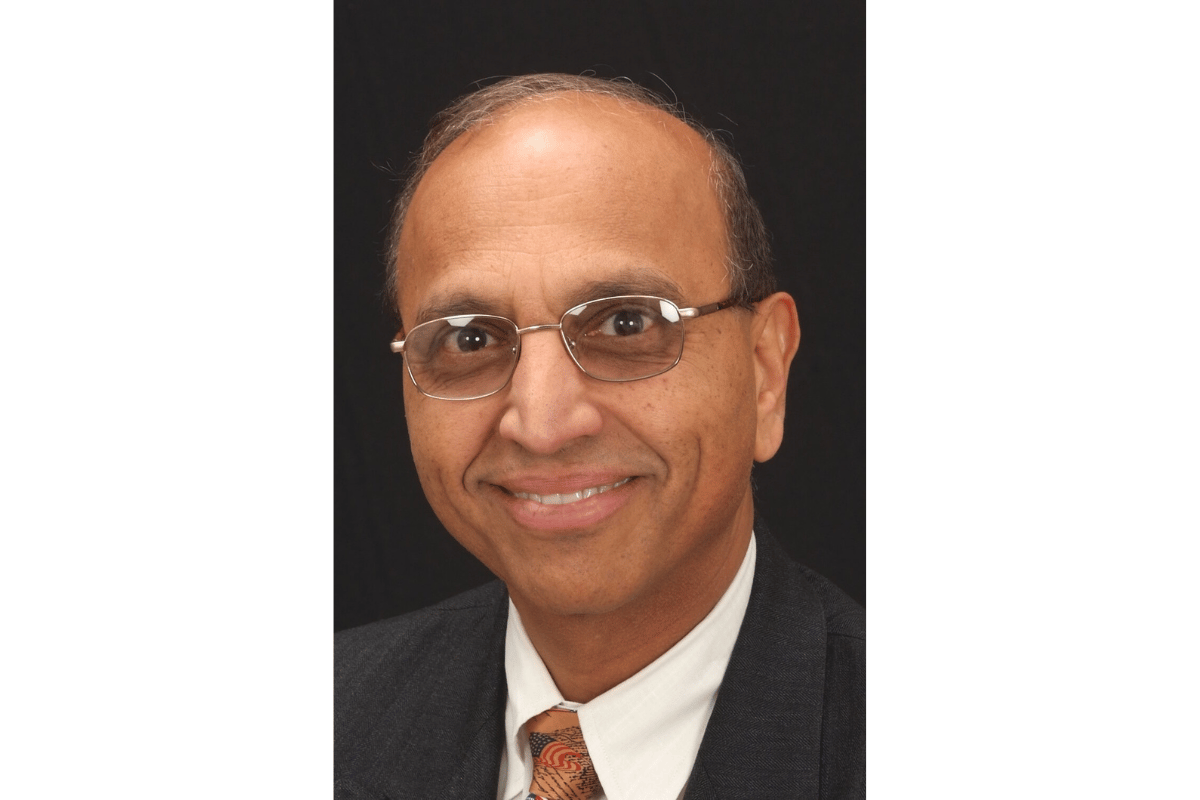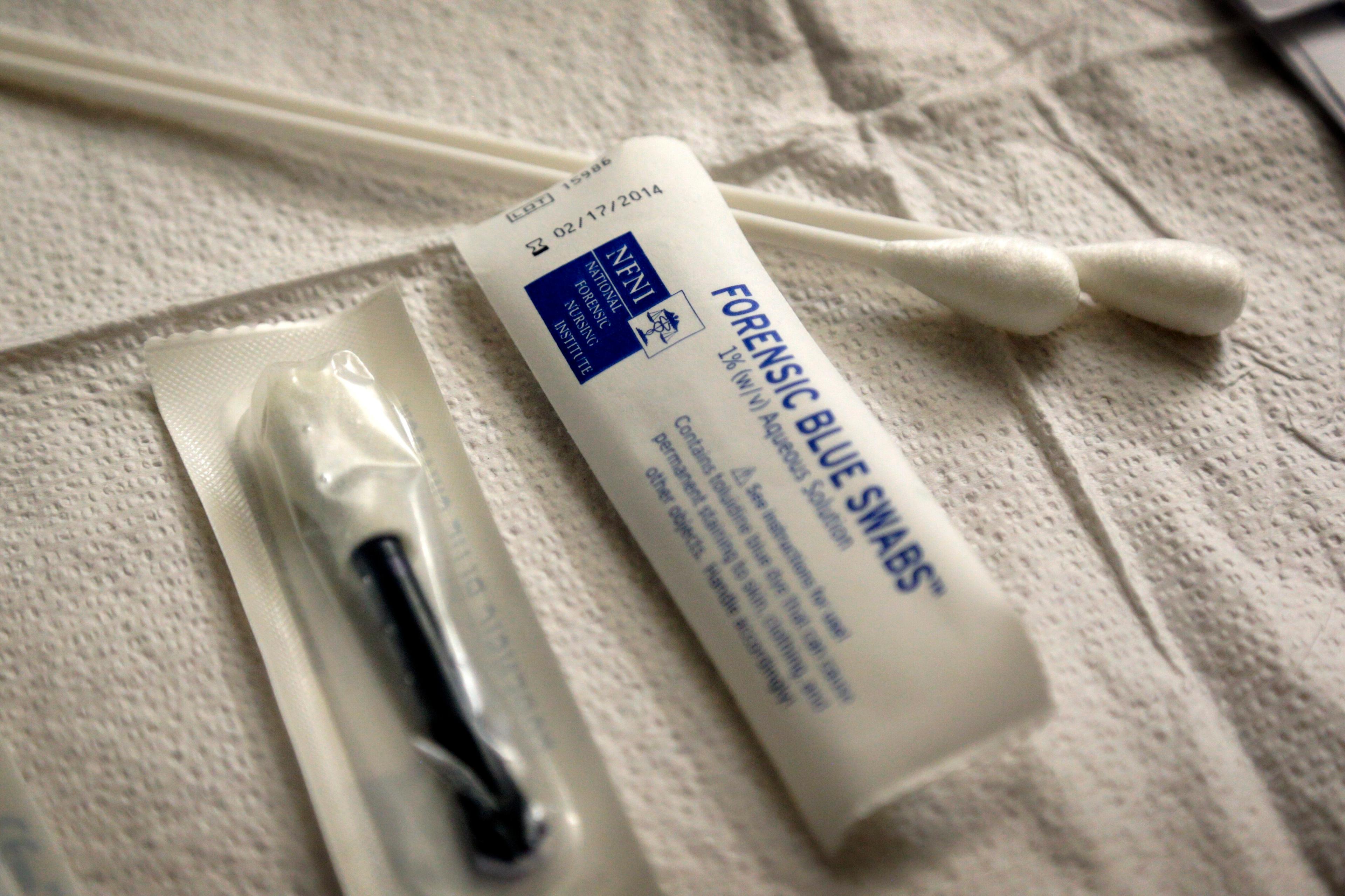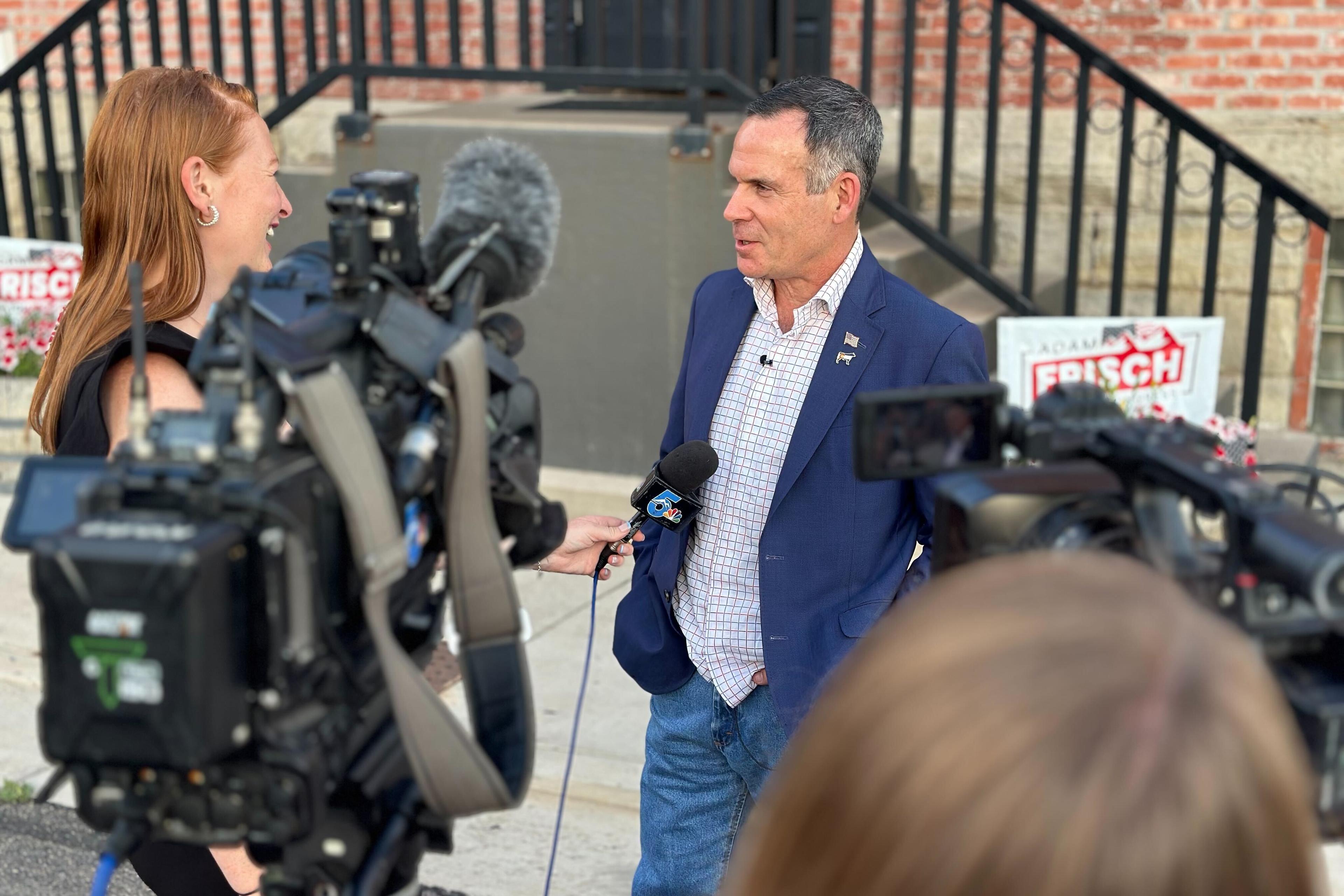
Adam Frisch anticipates logging around 70,000 miles of driving by the time his campaign for Colorado’s 3rd Congressional District is over — about 128 miles for every vote he lost by in 2022.
Frisch, a Democrat who previously served on Aspen City Council, lost a narrow race against Lauren Boebert last time around. In February 2023, he officially signed up for a rematch, only to lose his foil at the end of the year when Boebert chose to leave for a safer Republican seat.
Jeff Hurd is now the Republican nominee, but Frisch says his campaign was not anti-Boebert, but rather pro-Western and Southern Colorado.
“People are really sick of this lack of authenticity and sincerity and transparency,” Frisch said, “and one of the reasons that we've been able to connect so well is because we show up.”
In recent months, Frisch has been touting his support for abortion care, including his multiple family members who worked as obstetricians. He told Colorado Matters he’s concerned about climate change, but doesn’t want to shut off Colorado energy and that most of the residents he speaks with are concerned about losing access to rural hospitals.
This interview has been edited for length and clarity
Ryan Warner: I'd like you to name a problem in your community, your district, and why voters should send you to DC to address it.
Frisch: Let me talk about my neighborhood, my community, my district. First of all, it's 50 percent of the state of Colorado geographically, larger than the entire state of Pennsylvania. We have 27 counties. Some are 90 percent Republicans, some are 90 percent Democrats. Some are the wealthiest counties in the country, and some are the least well-off in the country. That's kind of the mindset of where we are. Cost of living and water and rural access to health care are the three things that we're spending a lot of time talking about. Number one on water, it remains the lifeblood of Colorado as well as Western and Southern Colorado, which is a district that I am focused on and whether it's ranching, farming, recreation, conservation, biodiversity, it's really important to make sure the water stays on the Western Slope and in Southern Colorado. I just learned this, Ryan: Colorado is the only state of the Lower 48 that does not have any water coming into it.
All 47 other states in the Lower 48 have some type of water coming into them. We're only an exporter of water as everybody knows. And with all due respect to my friends and growing populations up in Denver, we do have some people that are working to try to figure out how to get water out of the San Luis Valley up to the Denver area, and I think it's really important to make sure that the water stays in the San Luis Valley, Southern Colorado and Western Colorado.
On the aspects of health care, everyone has health care issues, Ryan, across our country because of how expensive insurance is and the cost of going to a hospital, seeing a doctor or a nurse. But, for those of us in Southern and Western Colorado, a lot of people are driving an hour or two to see their primary care doctor.
We're meeting people, they're driving two hours to have their babies delivered and for someone who grew up on an Indian reservation for the first five years in one of the ruralist counties in the entire country — Fort Peck Indian Reservation — my dad was in the Indian Health Service for five years, then he became an OBGYN for about 45 years, including working for Planned Parenthood in the past couple of years, I have a pretty good idea of how important rural access to health care is.
Warner: Well, there's certainly the question of rural hospitals and their fates. What is the specific action that someone in the 3rd Congressional District could expect you to take to shore up rural health care, to address that notion of someone traveling two hours to have a baby?
Frisch: One is, listen, there's a huge conversation at the national level about this health care idea and that health care idea. I want to get on these committees trying to figure out how to chip away with hitting some singles and doubles and making sure that the rural hospitals are supported. Some of it has to do with funding. Some of it has to do to incentivize that the doctors that are willing to go to rural parts of our state and rural parts of our country — like my father did 50 some years ago — are rewarded for being there for some period of time. We have a huge mental health crisis, Ryan, in the rural parts of our country, not just physical health care. Our ranchers and farmers in our state are starting to surpass veterans in suicide rates, and so that's something that we're spending a lot of time talking about. And, while orthopedics and cancer care and some other specialties make money in hospitals, mental health is a financial burden.
It's really important to make sure that there are mental health care abilities to be provided in our rural areas. A lot of people pay a lot of taxes to (Washington) DC and some of that money needs to be reinvested back in these local communities. I think it's much better to have the local communities be making those decisions about how that money is divided up. We don't want that to be decided by people in Denver or people in DC, but if we can empower county health departments, it's really about local control, but there's a lot of money that can be reinvested back into these communities that I think would be very helpful.
Warner: You painted the contrasts of your district and indeed it can feel like a mix of haves and have-nots. You live in Aspen where the haves have private jets. How do you convince voters in towns without Gulfstreams that you're the right candidate?
Frisch: Well, to be very clear, I do not have a Gulfstream or any type of plane. I do not even have a model plane. Katy and I moved there 20 years ago to start raising a family.
Without a doubt, and I knew it from day one going in — that one of the reasons we’ve driven 65-66,000 miles on the road, I'm doing a lot of these miles with my son, Felix, which has been great. He just graduated from high school. He took his junior year of high school online to travel around with me. So we've driven about 40,000 miles together. I've driven a total of about 65,000 and we are driving around meeting people where they are and listening and learning from that, and I appreciate there's some amount of skepticism from someone coming from a mountain town. That has happened in the past. but one of the reasons we did very, very well last time (in 2022) and we're continuing to do well this time is, I show up and I listen. Here I am showing up in Rio Blanco — which some parts of that district I think I got 10 percent of the vote — but I showed up at the Farm Bureau meeting in Rio Blanco. Or we're showing up in Otero County and we are showing up in Cortez and we keep on showing up. We have open houses. We do not curate the audience that we want to speak to. I stand in Grand Junction with a microphone and we've had up to 150 people there, and there's everything from really liberal progressive people to people in Trump hats. People are really sick of this lack of authenticity and sincerity and transparency, and one of the reasons that we've been able to connect so well is because we show up.
Warner: Especially voters on the right have told the CPR news that immigration remains a top issue for them and there seems to be this increasing desire for stricter enforcement.
Frisch: Yeah, listen, we need to secure the border. You're hearing that more and more from a variety of people across the political spectrum. I think until a couple of years ago, there were two separate conversations going on when people talked about immigration: There was a border conversation and then there was an immigration conversation, and with a focus on these 12 or 13 million people that are living in our country in some level of less than a hundred percent formalization economically in their community. And while I'm fully supportive of trying to work on the Dreamers and making sure that the people that are here and have already been going to school with us, working in our businesses, praying with us on the weekends and doing community activities, goes on, the problem is over the past year-and-a-half, and I've said this publicly many times, the White House got behind the ball and they dropped it, and every graph will show and every story will tell you — it's not just on Fox News — that there has been a huge increase in border crossings. And we need to figure out a way to secure the border and then we can have some of these other conversations that need to happen.
Now, based on that, I'm fully supportive of putting more resources into additional border patrol in addition to stopping as much illegal immigration as possible. I'm fully supportive of trying to make sure that we have a healthy amount of legal immigration done in a fair way. We also need more judges and more people processing those that are showing up and waiting in line because we want more people following the rules of the road, and that's important economically, especially in Western and Southern Colorado.
Our ranchers, our farmers, our health care providers, our hospitality businesses. We all need more workers. From a national standpoint, the United States of America has no more economic growth with only those people that are born in the United States. That's just a simple demographic math question and problem in front of us. So the good thing is, even when I'm in the really conservative parts of our district — and I spend a lot of time there as well — people want the border fixed.
Some people say they want it closed, and I don't think they mean closed as they want the border closed for trades and goods because Mexico is our number one trading partner in the United States, and it's very important that we remain that way, but we need to get the border under control. And right now it hasn't been, but there's a way that we can be firm on our rules and still have humanitarian aspects that honor the Statue of Liberty that my grandparents and my great-grandparents on both sides of my family went through and so many people did in our country as well.
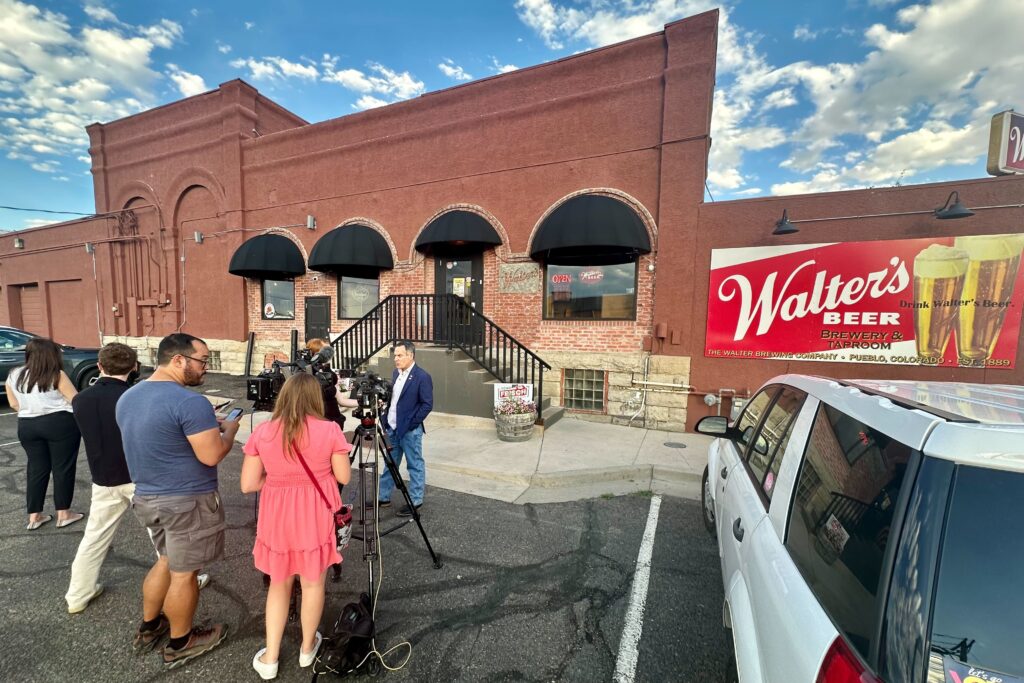
Warner: Just quickly, would you have supported the scuttled immigration deal that was proposed by one of the most conservative members of the US Senate?
Frisch: Yes. I think it was important to do. Both parties,to me, have failed on immigration as they have on some other policies, but both parties have turned the immigration conversation into a political football for political power, and I think it's been disgusting. It has hurt a lot of families. It's hurt a lot of individuals. We're not the best country when we play politics with things like immigration because immigration are real peoples' mothers and fathers and kids.
Warner: On your website, I just want to note that you say the transition to renewable energy is being made too quickly to be feasible. How would you work to adjust it?
Frisch: Listen, we have a climate crisis, and I say that in Moffat County as I do in Durango — La Plata (county). Those two counties have roughly different opinions about a lot of different things, but there's a climate crisis. It's getting hotter and drier too. Colorado, especially on the Western Slope, is the best place, probably in the country, if not in the world, to make sure that we produce the cleanest energy regardless of what that energy type is. I'm really excited that Pueblo has this 150-year-old steel mill and it's 80 percent solar-powered. It's the only steel mill in the world that has that much type of solar power. Also, next door to the steel mill down there is the world's largest manufacturing of really well-paying jobs, putting up these wind turbine towers, which is really important.
Having said that, I'm burdened with facts and I'm burdened with math, and natural gas is going to be with us for a long time. I think it's really, really bad for us to shut down energy production across all energy sources in Colorado or the United States. Because when we are shutting things down, energy production in the United States or in Colorado and on the Western Slope, we're not getting solar power from Sweden. We're getting the same type of traditional energy sources from Venezuela, China, Iran and Russia, and that does not help the global climate. That does not help our national security and it does not help our economically challenged communities.
So I have this quip about “we need to stop exporting our guilt” and take a real hard look at the math that we need to get done. I fully appreciate there's a climate crisis, it's getting hotter and drier. There's ways for us to get there, but the math doesn't work out and the numbers — whether it's coming from the state or at the federal level that's being talked about — we need to have this energy transition addition happen, but we need to be realistic. One of the problems that-
Warner: Let me just stop you there, Adam, because you said we shouldn't be shutting down plants. I want to make sure that we put a finer point there. Are you referring at all to coal plants or are you talking purely about natural gas?
Frisch: I'm not sure I said the word plant, but if I did, that's fine. We are making it harder and harder in the United States to produce. One thing that I'm supportive of is this natural gas transition. It is going to be a transitional energy source for a long time. And I think it was a huge disservice to our allies for national security reasons and economically for the White House to try to shut down exporting natural gas to our allies. Because I'm fully supportive of pushing back against Russian aggression from Ukraine and when our Western European allies need to get energy when we shut them off from our responsibly-produced natural gas, they're not going to get solar power from Sweden. They're going to get natural gas from Venezuela or Iran and such.
Warner: And so you're speaking of liquefied natural gas and exporting that potentially, which by the way means there's not a lot of distance between you and your opponent on this in terms of energy approach.
Frisch: Listen, I am focused not so much on a team Republican or team Democrat. I'm focusing on Team CD3. I don't know where Jeff Hurd is on this stuff. I just think for natural security, if we're truly concerned about a global climate crisis and we want to work on economics, it's important to have Colorado remain there. One data point that I think is somewhat humbling, Ryan, is California pretty much has gotten out of a lot of their energy production and now 15 percent of the gasoline that comes out of a California gas pump is coming from the Amazon rainforest. And I'm not exactly sure how Amazon rainforest gasoline and oil is produced, but I can't imagine that it's not better for the global climate to be produced in California. And so I don't want to see that happen in Colorado. We need to figure out how to do this responsibly, which we can do, and there's a long history of that. At the same time, realizing that we have some really big, long-term issues that face us to make sure that it stops becoming even hotter and even drier in Western and Southern Colorado.
Warner: You mentioned earlier the connection to obstetrics, OBGYN in your family. And so I do want to ask you about abortion rights. Democrats are certainly talking a lot about that and believe that that's an issue that will propel them into power. How important an issue is abortion access for you and this district?
Frisch: It is. Listen, I think there's a couple of things. First of all, if men could get pregnant, none of these reproductive rights, abortion conversations would've started 80, 90, a hundred years ago. That's just point-blank number one. Two, in the entire 39 weeks of a pregnancy, the government is never going to make a better decision than the woman and her health care professionals. Never, ever, in the entire 39 weeks.
As I mentioned before, my dad was an OBGYN for 45 and 50 years. He delivered a tremendous amount of babies, as my youngest of three sisters is doing as well. But obviously they were very involved in reproductive rights and it's super important. As someone who grew up every once in a while having some bomb threats and death threats at their house or at their father's office or clinic, I can vouch about how important it is.
It was really interesting — I just learned this a couple years ago — he would see protesters outside his clinic, which I'm fully supportive of people protesting, and then sure enough, six or eight weeks later, they would show up in the office needing services and say, "No, Doctor, it was an accident," or they were there with their daughter or their niece or their aunt. And so again, to me, this is not about anti-abortion or pro-abortion. This is about getting the government not involved in government-mandated pregnancies and government-mandated family planning. And one of the good things we have out in Southern and Western Colorado is that the vast majority of our conservative friends are much more from a Libertarian conversation.
They want the government out of the bedroom, who you want to love, who you want to marry and how you do your own health care. And so I'm very supportive of Amendment 89 that's coming on the ballot as well, and I'm confident that CD3, even though it's going to be voting for Donald Trump for president, is going to be supportive of Amendment 89 because we do not want government regulations over women's health care decisions. Men's health care is not regulated by the federal government to that standpoint, I'm not sure why female health care regulations should be part of that conversation.
Warner: You're speaking of Initiative 89 on the state ballot, which would change the constitution to recognize a right to abortion. Would you want something on a federal level to that same degree?
Frisch: Yes, is a short answer. It's one of the very rare things that I think that are not best left to the states. I'm a big fan of local control. I think it's important when it comes to land use code, try to figure out how to tackle some of these housing issues, it's best left to local control. The same thing with trying to get more rural health care resources into the communities. That should not be decided by DC or Denver. That should be decided by the local elected and civic leaders. But when it comes to reproductive rights, I'm supportive of reinstating Roe V. Wade and making this a national protection for everybody.
Warner: You invoked former President Trump earlier, you seem confident he'll win in the 3rd Congressional District. You were early in calling on Joe Biden to step aside on the Democratic side, are you confident in how Democrats have responded to the change at the top of the ticket?
Frisch: Ryan, from when I started to announce my run against Representative Boebert in mid-February of 2022 through July 1st of 2024, I don't think I ever mentioned Donald Trump's name or conversations about MAGA or anything to do with the national race. I was not involved in the national race. I'm not involved in the county commissioner races or the State House races. I'm focused on how to look after and represent the men and women in small businesses of CD3 and nothing more than that. On July 2nd, I did send out a press release that ended up getting posted in the Washington Post. I asked for both parties to pass the torch, but obviously that included President Biden, with all due respect. I just thought that his ability to lead the government in the next four years, let alone win, wasn't really there. And so my opening comment and my press release was “only in politics is stating the obvious so rare.”
Warner: And so what do you make now of the Democratic ticket?
Frisch: Whoever people want to vote for at the top of the ticket, that's up to them, whoever they want to vote for, the county commissioner, that's up to them. I am looking to build a coalition. My mom calls it the Pro-Normal Party Coalition.
Warner: Is Kamala Harris a pro-normal candidate?
Frisch: Well, I don't know. I don't spend a lot of time thinking about that. To me, I'll say this, without getting into different policies between the former candidate and the current candidate and Vice President Harris, there's obviously more excitement and a sense of relief that I hear from people. Whether it's Democrats that are excited or whether it's Republicans knowing that if the Democratic ticket happens to win, I think even more Republicans would probably rather have the vice president there than Joe Biden.
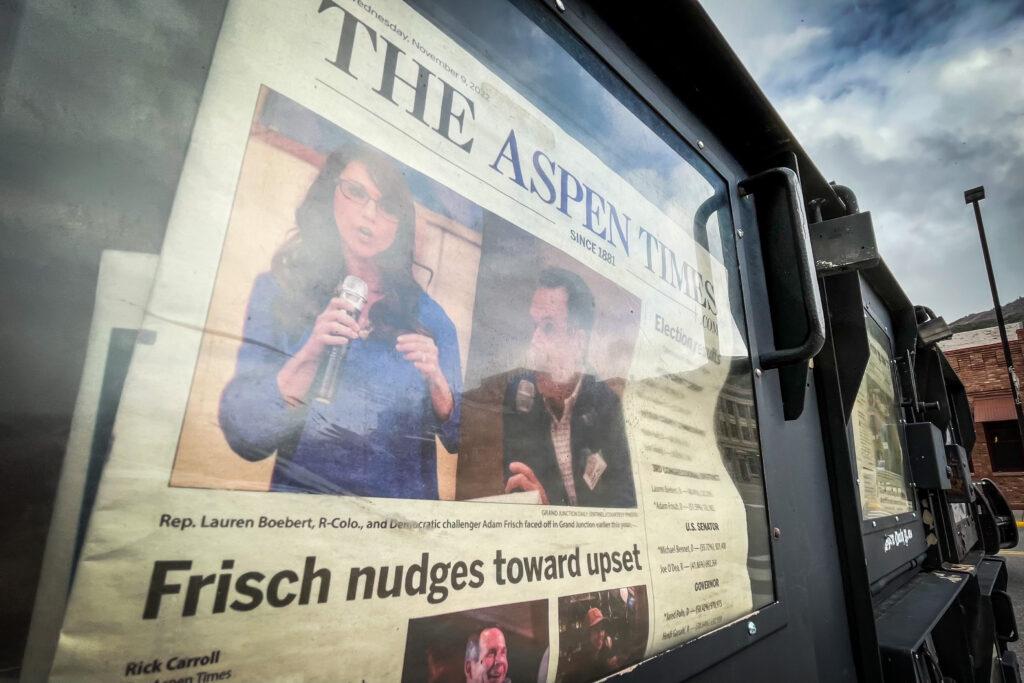
Warner: Did you lose your fundraising foil in Lauren Boebert? I just note that many of your fundraising emails still reference the closeness of that last race.
Frisch: Well, we mention the closeness of the race, but we make it very clear that we're not running against her anymore and we have a new opponent and we have an opponent that's taking corporate PAC money, which we're not doing. Yes, without a doubt, Representative Boebert generated a lot of revenue for us, but if you've looked at the first in our second quarter of fundraising when she was gone, we've been able to do very, very well. But at the end of the day, Ryan, it's not about that. Money is a necessary evil to get our message out, but it's votes that matter.
Warner: You have made several references to the vastness of the 3rd Congressional District. It also includes two sovereign nations in the Ute Mountain Ute and Southern Ute Tribes. Have you visited those reservations?
Frisch: Yep. I've been in both reservations five or six times over the past two and a half years. I was just with both chairmans two weeks ago, including some of their water specialists. I gave a talk at the Water Congress down in Colorado Springs, which is the annual gathering of all the Colorado water gurus. And while I understand water, I'm certainly not a guru. And so I was down there and I made it very, very clear — I also gave a presentation down there — and I made it very clear that one of the key aspects of making sure that Colorado water stays in Colorado and Western and Southern Colorado water as well is that we need to make sure that there are continuation of sovereign-to-sovereign relationships with the Southern Utes and the Ute Mountain tribes.
Warner: Former Mesa County Clerk Tina Peters will be sentenced soon on criminal charges related to election security. Voters surveyed by Colorado news outlets, including this one, have said they're concerned about the health of our democracy. What conversations are you having with voters in that regard, Adam Frisch?
Frisch: Well, I am a rock-solid believer that Colorado has some of the best election laws and best election integrity in the entire country. And I put my money where my mouth was in that comment because the week after we had the closest race in the country, I sincerely conceded to Representative Boebert before the citizens-mandated recount that happened. And so I have full faith in the Secretary of State and our Attorney General that we have rock solid election laws, and I'm very confident that the rules and regulations and that elections are going to be held fairly across the country as well. I get asked a little bit about the democracy conversation, but at the end of the day, the vast majority of people that are reaching out to me, regardless of Democrat, independent, Republican, has to do with the cost of living, affordability, access to health care, how important it's to protect water, and how both parties have failed them when it comes to the immigration conversation and border security. And at the same time to make sure that there's economic opportunity in our Southern Western counties.


